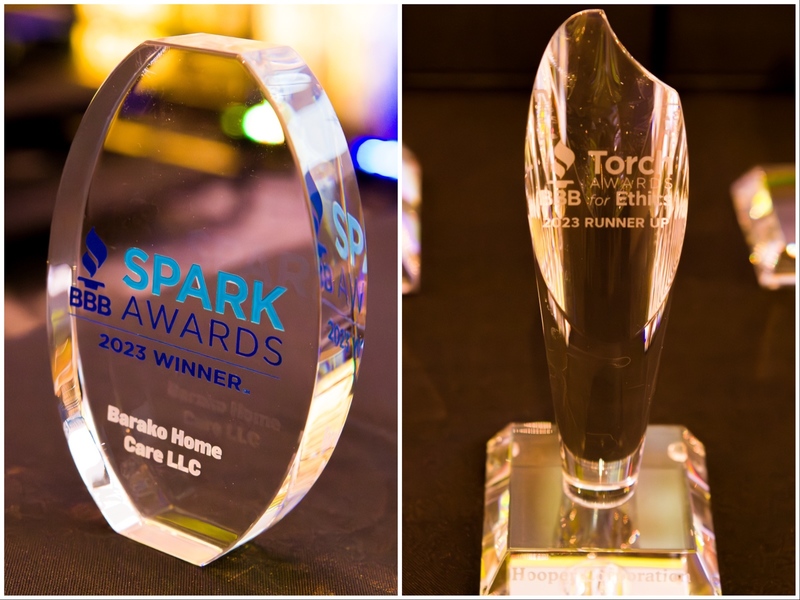Almost every day since 1964, Edward Skibba ended his work day with black ink on his fingertips. As the owner of a typewriter repair shop, it’s par for the course.
"Every night, I go home and do the dishes by hand. That’s the trick to getting the ink off," says Skibba. "My wife loves it."
Fifty years ago, Skibba started Ace Business Machines in his home. He later opened a shop at 2619 W. Atkinson Ave. and moved the business to the current location, 6022 W. National Ave., in 1967.
"There was a big riot (in the neighborhood) and so we moved up here," says Edward.
Originally, Ace serviced typewriters, adding machines and calculators. "That’s a calculator over there," he says, pointing at a machine that’s the size of a cash register. "A lot of people today wouldn’t have any idea what that is."
Today, the business sells and services manual and electronic typewriters, along with copiers, printers, fax machines and paper shredders. Ace also sells supplies such as toner and typewriter ribbon.
In 2010, Canon named the business the No. 1 warranty center in the nation for printers.
"We take pride in being able to service well," says Rick Skibba, Edward’s son who started working with his father in 1982 and now owns the business.
The Skibbas are able to fix anything on a typewriter, printer or copier as long as the part is still available. However, because so many parts are no longer for sale, they often venture to what they refer to as the "boneyard," located in the basement of the business and packed with "junked" machines that are used for parts.
Sometimes machines end up in the "boneyard" because of defective or unrepairable parts.
"We put a note on every one of the machines down here so we know which parts not to steal," says Rick.
The fire department routinely checks the "boneyard" to make sure there are aisles between the piles.
"And when a typewriter absolutely can’t be repaired we put a chain around it, pour cement in it and use it as a boat anchor," says Edward.
Both Edward and later Rick learned to repair typewriters at now-defunct "typewriter schools" that were offered by manufacturers including Royal, Silver Reed, Juki, Smith Corona, Facit, IBM and Canon. Most of the sessions were a week long and took place in large cities like New York, Chicago and Pittsburgh.
"We had to know every screw, every spacer," says Edward.
Today, Ace continues to repair approximately two or three typewriters every week. At the time of the interview, there were seven in the shop.
"They just keep coming in," says Edward.
One woman recently brought in her grandfather’s typewriter for a tune up because she wanted to type out her wedding invitations on it. Typewriters are often preferred by older people who are daunted by computers or have arthritis.
"They can push down a key for a long time without a double letter happening," says Edward.
Manual typewriters are also popular with people in their 20s and 30s who were born during the computer era.
The most common typewriter repair is to fix "sticky" keys but, according to the Skibbas, there’s not one key that’s notoriously stickier than the others.
"Stickiness doesn’t discriminate," says Rick.
Edward says he prefers typewriters (of course), but uses a Kindle Fire to play solitaire, "look up people to find out if they died" and to Skype with his granddaughter who lives in China.
Edward was born in 1932 – around 65 years after Christopher Latham Sholes invented the first commercially successful typewriter in Milwaukee.
He grew up in the Riverwest neighborhood and graduated from St. John’s Cathedral High School. Shortly after, he got married and the couple, now wed for 62 years, have three children.
"Eenie, Meenie, Miney and we want no mo," jokes Edward.
Edward, who is 83, still spends many hours working in the shop and in his home "office."
"It’s very satisfying to take something that’s not working and get it to work. I believe that when you work with your hands, you’ll never go crazy," says Edward.
In recent years Edward underwent a couple of operations, so Rick brought the broken typewriters home to his father.
"My mom made him repair them on the card table so they didn’t scratch the kitchen table," says Rick.
After 50 years in business and two generations of ownership, Ace continues to thrive and Rick believes the business will be around for many years in the future.
"We have survived a lot already and we will continue to do so because we are always able to adapt," says Rick.
Molly Snyder started writing and publishing her work at the age 10, when her community newspaper printed her poem, "The Unicorn.” Since then, she's expanded beyond the subject of mythical creatures and written in many different mediums but, nearest and dearest to her heart, thousands of articles for OnMilwaukee.
Molly is a regular contributor to FOX6 News and numerous radio stations as well as the co-host of "Dandelions: A Podcast For Women.” She's received five Milwaukee Press Club Awards, served as the Pfister Narrator and is the Wisconsin State Fair’s Celebrity Cream Puff Eating Champion of 2019.





